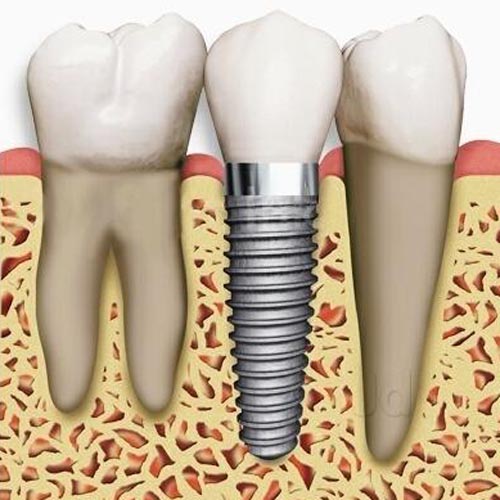Dental implants in Montreal
We offer full services for surgical or prosthetic dental implants for either the replacement of one, several or all of your teeth. For more information on the treatments available, you can view videos related to implants.

Simplant 3D Implantology

We use the Simplant 3D Implantology computer-assisted technology to ensure the best planning and execution of your implant treatment. This technology is the most advanced in the world for implants. We can plan the insertion of your implant through a virtual model of your mouth created from cone-beam tomography. We gain full knowledge of your anatomy with precision, thereby minimizing surgical risks, unexpected events and in order to allow for a more time-efficient and accurate surgery with less postoperative pain. We know well in advance of any bone grafts/requirements, and the quantity, length and diameter of implants to use. There are no surprises during the surgery. This planning includes the creation of a radiological guide and replicating the position of future teeth to ensure that the implants are optimally positioned.
At the Roy Street Clinic, we are aware that implants are expensive. We take the accessibility to care to heart. And that’s the reason our rates are very competitive. We also accomplish it all by offering prosthetic and surgical services under one roof. Come see us for more information.
What is a Dental Implant?
Implants are artificial roots on which crowns, bridges or full dentures are attached. After the removal of teeth, dental prostheses can then be attached to implants, while others can be removable.
Steps of treatment
A complete examination must first occur to determine if the patient can receive a prosthetic implant. The examination will include a medical review and an oral and radiological examination. We must ensure that there is sufficient bone quantity and quality to proceed with the insertion of dental implants and that the gums are healthy. Some cases may require bone grafts.
Implants are titanium screws that the surgeon inserts within the jawbones. Once inserted, the implant gradually solders itself to the bone, a process called osteo-integration. The healing time varies from one to several months, depending on many factors such as bone quality, occlusion (meaning the contact between the upper and lower teeth), the type of replacement that had to be done and if bone grafting was required.
The dentist responsible for the replacement will make and install all dental details (dentures, bridges or crowns) on the implants. Their making involves several steps. However, replacements such as crowns and bridges are similar to those made on natural teeth and the dentist uses a similar procedure, including teeth prints, laboratory manufacturing, insertion and adjustment.
The insertion of implants is generally minor surgery. The majority of patients that have undergone these treatments describe the postoperative period similar to as if they had had teeth extracted. When all final replacements are completed, the patient must then have regular check-ups and see the dentist at least once a year.

The preventing conditions
The main conditions that would prevent the insertion of dental implants are:
- Specific health problems such as uncontrolled diabetes;
- Girls under 15 years of age and boys under 18 years of age;
- The making of replacements being not possible with the implants. A conventional solution would then be presented.
- Lack of bone volume for the insertion of implants.
Lastly, a patient opting for this treatment must be able to maintain good oral hygiene.
Success rates and costs
The success rate of dental implants in non-grafted bone varies between 85% and 99% depending on implant location and the type of replacement. It depends primarily on great planning by the dentist in charge and on the surgeon as well. Many articles on the success rates and on manufacturing techniques of various types of implant-supported replacements can be found in scientific literature.
The cost of dental implants is higher than other conventional methods for replacing teeth. It varies depending on the number of implants required and the type of replacement. Before beginning treatment, the dentist must adequately inform the patient of all costs and treatment procedures.
Source: Referenced from “l’Ordre des Dentistes du Québec”





